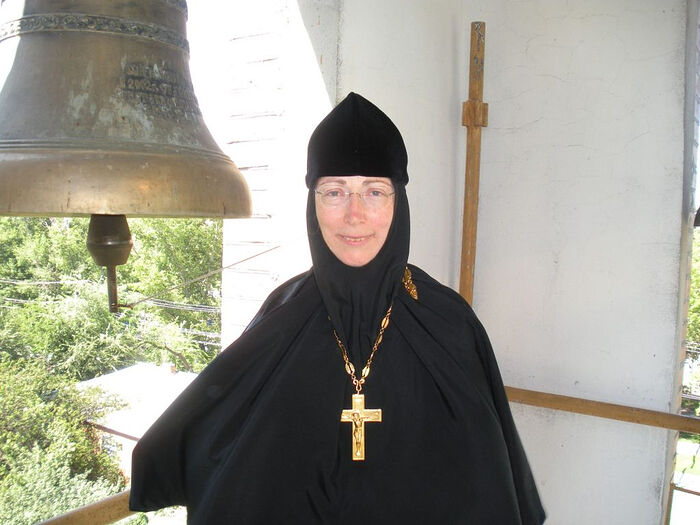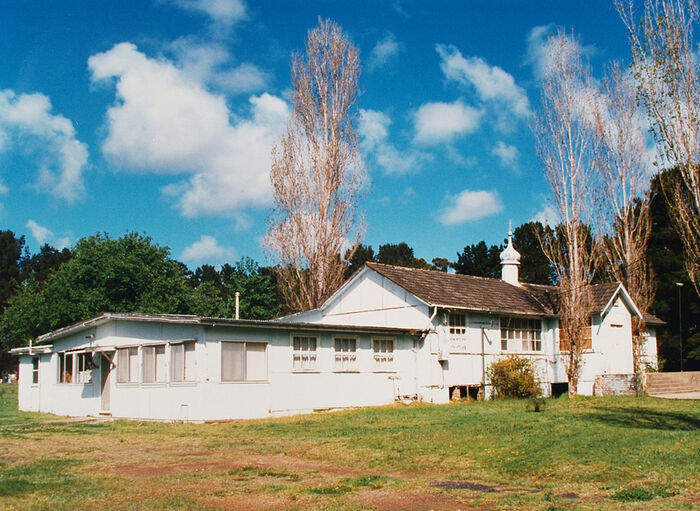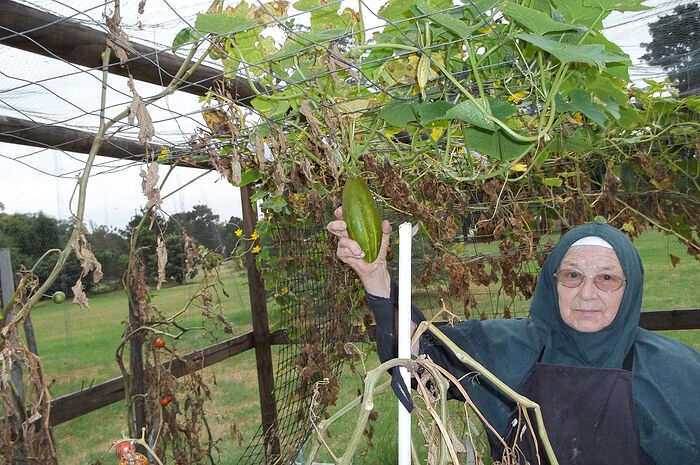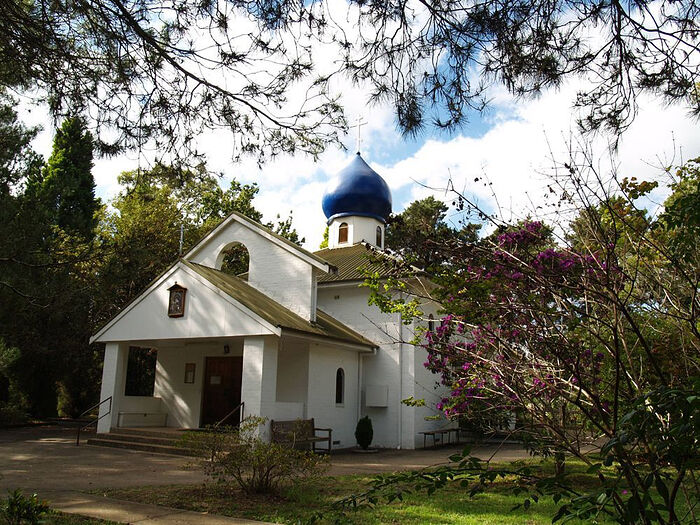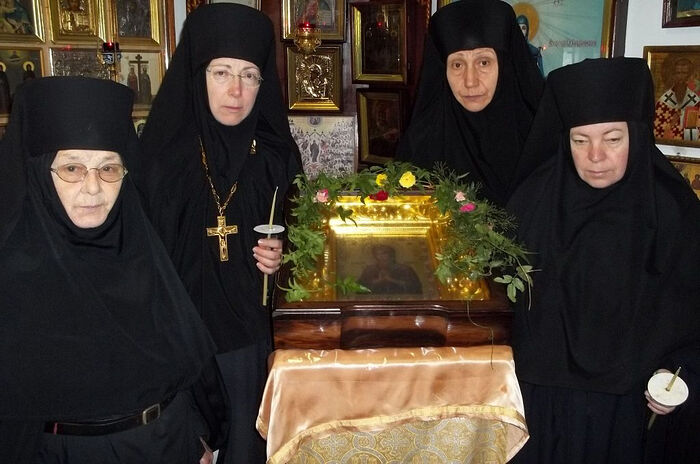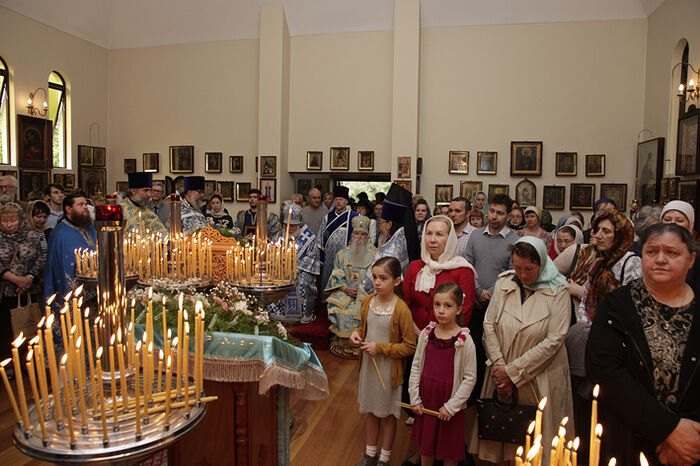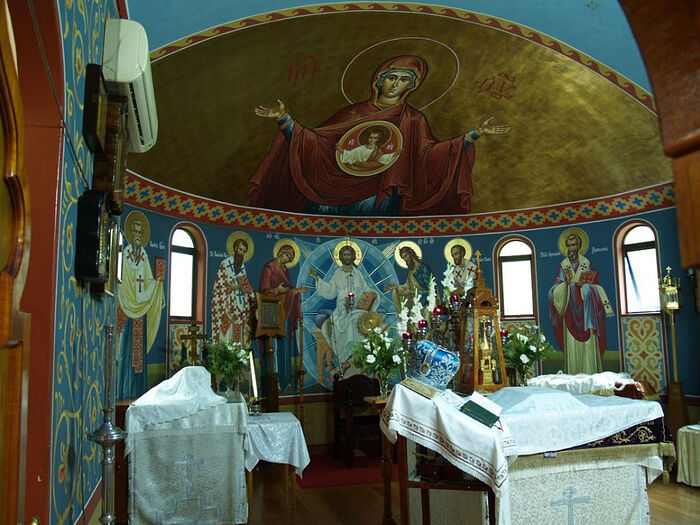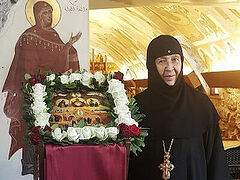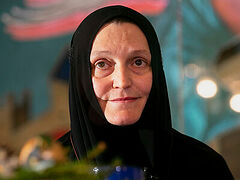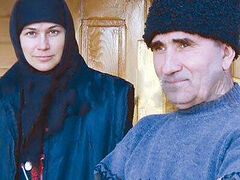Watch ye, stand fast in the faith, quit you like men, be strong. Let all your things be done with charity
(1 Corinthians 16:13, 14)
Abbess Maria (Miros) heads the Orthodox convent of the Kazan Icon of the Mother of God, which belongs to ROCOR. The convent is situated in Kentlyn, a southern suburb of the city of Sydney. Mother Maria was born in Australia and obtained a degree in medicine. But feeling a special call from God, she became a nun. We talked about the convent, choosing the monastic path, and repentance.
—Mother Maria, your blessing. Please tell us about your convent. How did it come about? How did you become its abbess?
—Our convent is the oldest of all Orthodox monastic communities in Australia. Archbishop Savva (Raevsky; 1892–1976) of Sydney, Australia and New Zealand wanted to establish a monastery for many years. In the early 1950s, Protodeacon Peter Grishaev donated land to the diocese precisely for this purpose. He had himself received this land after fighting in World War II. At first, Vladyka organized a community of monks here. The first Liturgy was celebrated in 1956.
The first years were tough. There is almost no fertile soil here, only stones and clay. Vladyka gradually built a monastery. Trees were planted, but it was hard to dig in such soil. There was no running water, so water had to be brought in barrels from the nearest town. There was no hot water either. Unfortunately, the community of monks was short-lived. At that time, some nuns were evicted from Harbin and Shanghai. Some moved to South and North America, others came to Australia. And when there was a community of monks here, the sisters helped the monks with practical things. But the community of monks split up, and from late 1958 on the sisters remained in the monastery that was under construction.
Abbess Elena (Ustinova), the actor Peter Ustinov’s sister, was appointed abbess of the community for nuns by the Synodal Decree of 1959. Gradually, our convent began to develop. The sisters ran a large farm (there were chickens and cows) and baked prosphora for all the parishes in Sydney.
I entered here under the second abbess, Mother Eupraxia (Pustovalova). She was a spiritual child of Metropolitan Philaret (Voznesensky) of Eastern America and New York, the First Hierarch of ROCOR. She wanted to become a nun back in Harbin, but the conditions were difficult at the time. She moved to Australia with her elderly mother. The future abbess was a novice for ten years and then became a nun. Mother Eupraxia was appointed abbess in 1984 on the feast of the Holy Myrrh-Bearing Women. I entered the convent during her abbacy and was her cell attendant. I also labored as a physician, and performed probably all the obediences that we have at the convent: in the kitchen, in the prosphora bakery, in the choir, and in the church. Under Mother Eupraxia ten more sisters joined the community. But unfortunately, the younger sisters left, because they did not want to obey. Monasticism is a serious way of life, where you must cut off your will and show total obedience. This is the most important thing in monastic life.
Mother Eupraxia reposed in 2006. On the feast of the Transfiguration of the Lord in the same year I was appointed mother-superior of the convent, and on the feast of the Kazan Icon of the Mother of God, in November 2006, I became abbess.
Our sisters are used to hard work. Over the years of my abbacy we have had novices, among whom was a girl from Taiwan, one Serbian, another from Russia. A couple of years ago, two of our novices took monastic vows. Now we have four stavrophore nuns. We serve according to the full Church Typicon whenever possible. Services are celebrated without any abridgements. Now we bake fewer prosphora—we can no longer bake many of them. We send prosphora to two parishes in Sydney. I started a candle factory here, and over many years I myself have made thousands of candles by hand.
We have a farm where we keep several dozen chickens, and a small vegetable garden where we grow tomatoes, cucumbers, potatoes, corn and strawberries. There are apple trees, pear trees, walnut trees, and even quinces. We also keep bees. Our priests usually look after them.
Five Liturgies a week are celebrated at our convent, and two priests serve by turns. One of them is a married priest, the mitered Archpriest Nikita Chemodakov, who has his own parish in Sydney. The other is Hieromonk Dorofei (Urusov)—His Holiness Patriarch Kirill of Moscow and All Russia blessed him to stay with us in Australia.
The construction of our main Church of the Kazan Icon commenced under Mother Eupraxia in 1984, and it was consecrated in 1990 by Metropolitan Vitaly (Ustinov). Our convent is called “New Shamordino”, since we have a close link with Shamordino Convent in Russia. One of our sisters, Nun Paraskeva (Kudinova), was the last nun tonsured by Optina Monastery. She was tonsured by Elder Hieroschemamonk Anatoly the Younger (Potapov) of Optina just before the monastery was closed.
—Mother, how did you realize in your youth that monasticism was your vocation? How can a person understand that God is calling him to monastic path?
—Now I see clearly that already in childhood I had a desire to become a nun, but then I did not realize it. From the age of twelve I wanted to be a doctor and work somewhere in Africa or India, helping the poor. From the age of seventeen I attended church regularly, I and began to sing and read in the choir. My father-confessor began to furnish me with spiritual literature, noticing my desire. But I had never told anyone about my secret dream of becoming a nun. For ten years I prayed to the Lord to arrange everything in my life according to His will.
When the first pilgrimage trip to the Holy Land was organized in 1986, I joined it. There we met with spiritually experienced, clairvoyant people, and visited Mt. Sinai. During that trip I realized that the Lord was giving me the green light to enter the convent. My spiritual father took this seriously and stopped me for a while until it became completely clear that the Lord was calling me for this. Then he gave me permission; he gave me his blessing to enter the convent.
Maybe it isn’t so obvious with everyone. One of our nuns came to visit her cousin who was at the convent and she also felt this vocation, then entered the convent. Another sister was widowed, and her spiritual father advised her to enter the convent to atone for the sins of her family. Another sister did not want to get married—she came to us, liked it here, and stayed forever. We have a nun who felt that she had lived a very sinful life and came to repent. A priest noticed in another of our sisters that deep spiritual feelings were maturing in her, and he sent her to the convent. That is, everyone has their own path.
We had nuns who asked permission to join the convent at the age of eighty. The most illustrative example is Nun Neonilla. She lived in a village near our convent, helped the sisters, asked permission to join, and was admitted. She lived very humbly and tended the convent’s garden. But then her daughter, a Catholic nun, took her away and placed her in a nursing home. She took off from her the monastic habit, forced her to eat meat, and her mother humbly endured everything. She died on the first day of Pascha, when, as we believe, the soul passes through all the aerial toll-houses successfully. We had other elderly novices who realized that they would not be able to carry out the labor of obedience and would not remain at the convent. So, things turned out differently for different people.
—Please tell us about Metropolitan Hilarion (Kapral) of Eastern America and New York. What do you remember most about him?
—He was our ruling hierarch. I confessed to him when I came to Jordanville Monastery in America. He had a very pure and holy soul. He was very, very humble, and loving. He never upset anyone, but always stuck to his line. He was very well versed in all areas. Our monastic services seemed long to him. He served humbly, as a priest, when he visited us.
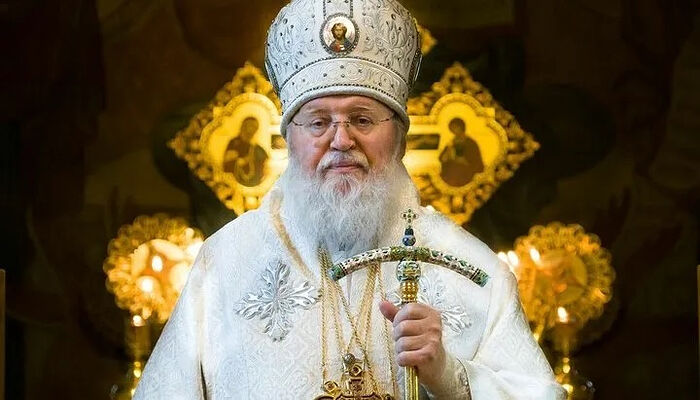 Metropolitan Hilarion (Kapral)
Metropolitan Hilarion (Kapral)
—We cannot perform the full cycle of services every day. That is, we have Vigils only on Saturday evenings and before the major feasts. But during Lent we hold the full cycle of services. On weekdays during the year we have only the Ninth Hour, Compline and the evening rule. We read the morning rule and the Midnight Service privately in our cells, because not everyone is able to get up at four in the morning and go to perform the rule. Vladyka advised us to wait until we have more sisters.
—Are there many lay parishioners in your convent now?
—This is another problem of ours. Young families have now taken up residence in the village next to us, where the elderly people who attended our parish used to live. Most of these young families are English–speaking, so they go to English-speaking parishes. We serve in Church Slavonic.
We experienced frequent changes of clergy—there was no stability. A priest who served with us was against the rapprochement between the ROCOR and the ROC and took several dozen people with him. After that, the parish had to grow anew. The next priest was with almost the same mindset, and he was against the Church hierarchy to boot, and then he left too. The parish followed him, and we had to attract parishioners again.
Then the COVID-19 epidemic broke out. It was a tough time. Because of the restrictions, we were only allowed to stay within a three-mile radius of our homes. Some cities were completely “under lock and key”. People are used to watching church services online. Older people are still afraid of getting infected. That is, the parish has suffered much in recent years.
But last year, people started attending our convent again. Our parishioners come from various ethnic groups: Serbs, Macedonians, Greeks, local Australians, Russians and Arabs. These people came from all over the world. In general, our Churches in Australia are increasingly switching to English—not all clergy understand Russian. It’s sad, but this is a period of evolution. There are probably more Russian parishioners from Russia in Canada! And here we have few church-goers among the newcomers. There are many mixed marriages here, the consequences of which affect parish life. For example, my brother’s children do not speak Russian [Mother Maria was born into a Russian–speaking family.—A. K.]. That is, they do not understand anything in churches where services are in Church Slavonic. It does not have a salutary effect on parish life either. But, thank God, we work hard and do not give up.
—Mother, here is another question: What would you advise Christians living in Russia to do in order to keep faith in their hearts? How can they avoid succumbing to the temptations of the modern world, of which are more than enough in our country?
—First, they need to understand and recognize the role of Russia in the past and study the history of the country—how it fought and preserved its faith. I would like to advise people to realize the need to live their lives according to Christian teachings. There is a famous phrase: “Hasten to do good.” That is, people should take care of each other and help one another. And they should understand that the West is declining steadily. What comes from there seems tempting, but does not bring any good—on the contrary, it has a very detrimental effect on the human soul. Of course, people should read the Patristic writings and works of modern saints. They should visit holy sites and ask the saints to strengthen their faith, because we cannot strengthen our faith ourselves—this is a gift from God. It will be great if parish priests organize pilgrimages to monasteries. It is extremely important. Now there should be a call to the whole nation for repentance.
For example, my parents lived in Harbin. When they were under Japanese occupation, Soviet pilots tried three times to raid Harbin and bomb it. Then the people, from the Church hierarchy to laity, began to fast and celebrate prayer services continuously throughout the city. And when airplanes arrived, the city would be hidden in heavy fog, so the airplane radar could not see through it and identify their targets. So, people should understand that we are in a time of wars, and it is necessary for them to deepen their repentance and attend church more often. But it should not be done superficially. It’s not just a ritual—to buy and light a candle. They need to study church services closely—what is said and what is read there.
—We are living in a rather tough time.
—Yes, but the Lord sobers up our souls through such moments. If everything is quiet, the soul forgets about God. And most importantly, common sins should be dealt with. Firstly, the sin of judging—from judging the Church hierarchy to judging each other. Secondly, the sin of ingratitude—ingratitude towards God. We must thank God not only for good moments of life, but also for hard ones. People should be taught this somehow. The Lord sends us all the most useful and saving things.
—Mother, thank you for your answers and edifying words.

